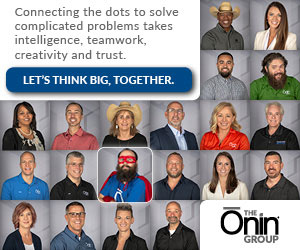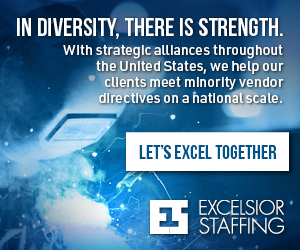Because rapid technological change requires employees to regularly upskill, having a college degree is becoming less relevant for employment. As a result, many employers are embracing experience over college credentials in the hiring landscape.
Since many companies are struggling to hire, they are exploring different approaches to fill job openings. Therefore, many of these companies are hiring based on skills rather than a college degree.
Skilled employees without college credentials are becoming even more valuable in the hiring landscape. As a result, these employees are finding additional opportunities to provide value to employers.
Reasons to Hire for Experience Over College Credentials
Many employers are hiring for knowledge, skills, and experience rather than college degrees for various reasons:
- Many companies are struggling to hire qualified talent.
- College credentials do not indicate the potential for success in a role.
- More high school graduates are entering the workforce rather than attending college.
- Employees who are self-taught or gained skills through experience are making up more of the workforce.
- Many college graduates do not work in their field of study.
- Most college graduates require training to develop the necessary skills to carry out job duties and responsibilities.
- Changing technology drives the need to develop new skills.
- Evolving employee expectations include increased flexibility when hiring.
- Skills-based employees can adapt to changing employer needs.
- The jobs available in 5-10 years might not exist today, causing the need for regular upskilling.
Benefits of Hiring for Experience Over College Credentials
Companies that hire for knowledge, skills, and experience rather than college degrees benefit in many ways:
- Wider candidate pools
- Increased opportunities to employ members from underrepresented groups
- More inclusive workforce
- Greater employee knowledge
- Increased employee ideas and perspectives
- Enhanced creativity
- Diverse skill sets
- Valuable employee experience
- Increased agility within the workforce
- Better problem-solving
- More opportunities to develop employees’ potential
- Greater innovation
- New pathways for business success
- Increased competitive edge
- Ability to reshape the job market
- Ability to challenge societal norms and impact social change
Value of Hiring for Experience Over College Credentials
Hiring for knowledge, skills, and experience rather than college degrees provides employers with significant value:
- Hiring for skills and experience is significantly more predictive of job performance than hiring for education.
- Employees hired based on skills and experience typically are promoted at a higher rate than employees hired based on college credentials.
- Employees who are hired for their skills and experience tend to be more motivated and work harder than employees who have college degrees and no experience.
- Skills-based hires typically have experiences and abilities that education-based hires do not.
- Presentation skills, problem-solving abilities, and maturity often differ between employees hired for their knowledge, skills, and experience and employees hired for their college credentials.
- Skills- and experience-based hires typically are more engaged, productive, and loyal to their employers than education-based hires.
- Alternative education paths can provide direct, practical skills relevant to employers’ needs.
- Companies that hire for knowledge, skills, and experience tend to have better performance than companies that hire for college credentials.
Methods for Hiring Based on Experience Over College Credentials
Review your talent strategy. Determine whether having a college degree is essential for a job. In many cases, knowledge, skills, and experience are more important to carry out the job duties and responsibilities than having college credentials.
Emphasize other skill assessments. Look for learning badges from digital courses, completion of boot camps and online courses, vocational training, candidate recommendations, and the results from relevant projects. Also, use a game-based simulation to test for relevant skills. Additionally, offer a trial period to evaluate candidate skills during a set time.
Understand which skills are required for a job. Include these skills in your job postings.
Focus on skill-set hiring. Provide a platform where candidates apply to specific skill areas rather than jobs. Select candidates can participate in skills testing and be referred for relevant jobs.
Implement artificial intelligence (AI)-powered skill assessments. Companies such as Bryq and iMocha offer platforms that evaluate candidates based on their ability to perform job-related tasks and demonstrate essential competencies. These platforms help identify candidates with the hard and soft skills needed for success in a role.
Modify your hiring practices. For instance, ensure your hiring team has diverse educational backgrounds. Also, remove candidate education information from resumes. Additionally, set targets to hire alternatively skilled candidates.
Encourage career growth. Provide ongoing training and development opportunities for employees to advance within the organization. Also, base promotions on knowledge, skills, and experience rather than educational background. Additionally, consider using talent marketplace tools to predict, match, and offer jobs based on employees’ skills and goals.
Prioritize talent sharing. Managers, human resources professionals, and business leaders should encourage skills-based advancement.
Partner with a staffing firm. The firm has a vast, deep network of vetted candidates who have the knowledge, skills, and experience needed to excel within a job and your organization.
Do You Need Help with Hiring Experienced Employees?
The Ōnin Group can match you with candidates who can begin producing in a short time. Connect with us to begin the process today.






